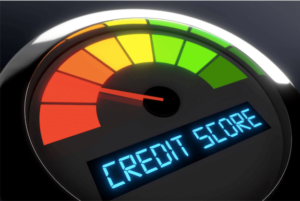According to Pews Trust, more than 12 million Americans taking out payday loans each year. This is not surprising since they offer a quick and easy way to borrow money if an unexpected cost or emergency expense arises.
While payday loans can be a helpful solution for borrowers who need quick access to cash, they also come with significant risks and drawbacks. Before taking out a payday loan, it’s important to understand the risks involved.
What Are Payday Loans?
Payday loans are short term loans that offers a fast injection of cash. Those who need money quickly before their upcoming payday can apply for a loan to help them stay financially afloat until they receive their next paycheck. To be eligible, applicants simply need to be aged over 18 years old, have a stable income of over $800 per month and a live checking account for the funds to be deposited into.
Payday loans are often used to pay for emergency bills such as medical fees, dental costs, pet bills and home repairs to name a few. Often those facing unexpected car repairs or funeral costs may look to borrow money this way too.
Payday loans can be accessed via physical stores or online platforms in the 37 states where payday lending is legal. Locations include:
- Alabama
- California
- Colorado
- Florida
- Illinois
- Indiana
- Iowa
- Kansas
- Kentucky
- Louisiana
- Missouri
- Nevada
- Ohio
- Oregon
- Tennessee
- Texas
What Are The Risks Of Borrowing A Payday Loan?
High Fees and Interest Rates
One of the biggest risks of payday loans is the high fees and interest rates. Payday lenders typically charge fees of $15 to $30 per $100 borrowed, which can equate to an annual percentage rate (APR) of 400% or more. These high fees and interest rates can make it difficult for borrowers to repay the loan on time and can lead to a cycle of debt.
Rolling Over or Renewing the Loan
If a borrower is unable to repay the loan on time, they may be tempted to roll over or renew the loan. This involves extending the loan term and paying additional fees and interest charges.
According to the Consumer Financial Protection Bureau, the majority of payday loans are renewed or rolled over multiple times, incurring additional fees and interest charges each time. This can lead to a cycle of debt that can be difficult to break.
Bank Account Withdrawals
Many payday lenders require borrowers to provide access to their bank account, allowing the lender to withdraw the loan amount and fees directly from the account. If a borrower is unable to repay the loan on time, the lender may continue to withdraw funds from the account, resulting in overdraft fees and additional charges. In some cases, borrowers may close their bank account to avoid these withdrawals, which can result in further financial complications.
Debt Collection and Legal Action
If a borrower is unable to repay the loan, the lender may turn the debt over to a debt collection agency or take legal action against the borrower. This can result in additional fees and charges, as well as damage to the borrower’s credit score.
Impact on Credit Score
While payday lenders do not typically report to the credit bureaus, they may send unpaid debts to collection agencies, which can appear on the borrower’s credit report and lower their credit score. Not only can this make it more difficult for the borrower to obtain credit in the future, but it can also mean that they would receive less favorable terms such as higher interest rates or shorter loan lengths going forward.
What Are Alternatives To Payday Loans?
While payday loans can be a quick and easy solution for borrowers who need cash immediately, there are alternatives that may be more affordable and less risky. These alternatives include:
| Personal Loans | Personal loans are typically available through banks, credit unions and online lenders. They offer lower interest rates and longer repayment terms than payday loans, making them a more affordable option for borrowers. |
| Credit Cards | Credit cards can provide quick access to cash and may offer lower interest rates and more flexible repayment terms than payday loans. |
| Borrowing From Friends And Family | Borrowing from friends and family may be a more affordable and less risky option than taking out a payday loan. However, it’s important to establish clear repayment terms and communicate openly with the lender to avoid any strains in your relationship. |
| Emergency Assistance Programs | Many organizations offer emergency assistance programs for those who are struggling to make ends meet. These programs may provide financial assistance for housing, utilities and other essential expenses. |
| Boost Your Income | There are many ways you can look to boost your savings. Taking on an extra part-time job, starting a side hustle or selling items you no longer need are all good ideas. You can also look at ways to budget effectively and save money on your everyday expenses such as your energy bills, petrol and groceries, and consider cutting back on unnecessary expenses such as TV subscriptions or gym memberships. |
Concluding Thoughts
In conclusion, payday loans can provide quick access to cash, but they also come with significant risks and drawbacks. Before taking out a payday loan, it’s important to understand the costs involved and to consider alternative options.
Borrowers should carefully weigh the risks and benefits and should only take out a loan if they are confident that they can repay it back on time. By taking these steps, borrowers can make an informed decision about whether a payday loan is the right choice for their individual circumstances.




